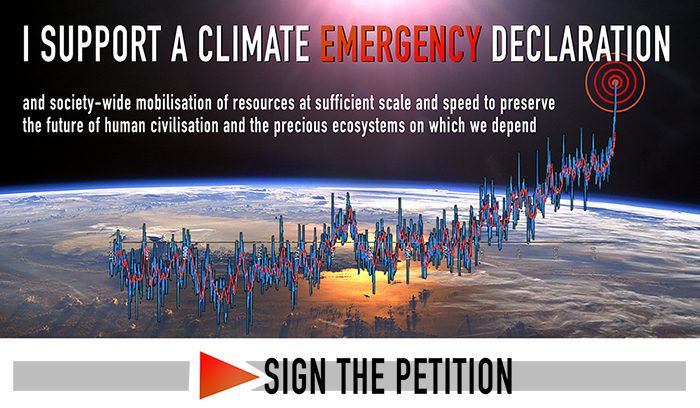David Spratt’s presentation at the Victorian Climate Action Network forum on 11 September 2016

The scientific case for understanding climate heating as an emergency
The world now faces a climate emergency. Our scientists tell us. We know it. Slowly the political elite are realising that the current international climate policy-making paradigm is dying of failure.
Recognition of the climate emergency is now written into the platform for the Democratic Party for the 2016 US presidential election.
So how does our scientific understanding guide as to constructing a new way of looking at the challenge, as to what is happening, what is safe, and how we should respond?
The Victorian Climate Action Network held a workshop on these questions on 11 September 2016. The slides below were the contribution by David Spratt to the first session, which asked the question ‘Why is emergency-scale action necessary?’.
David Spratt’s 33 powerpoint slides:



























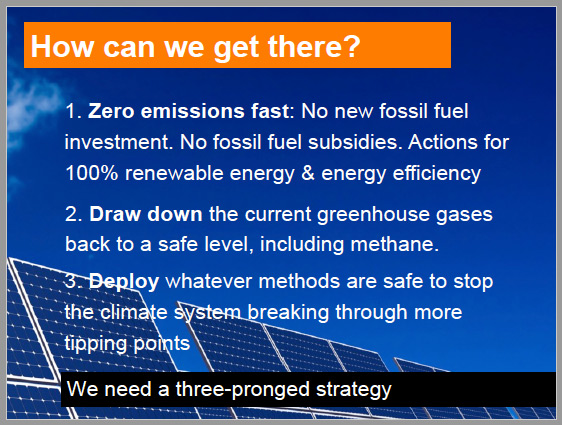
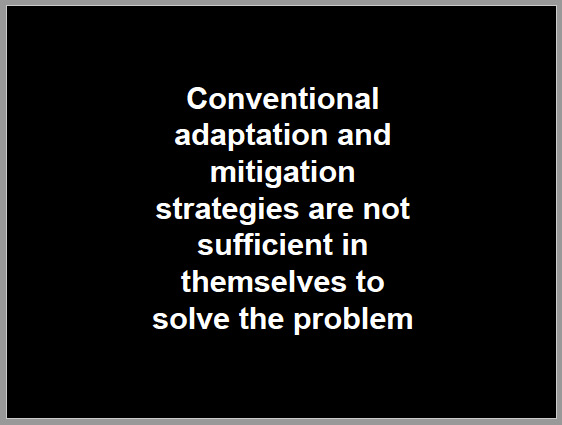

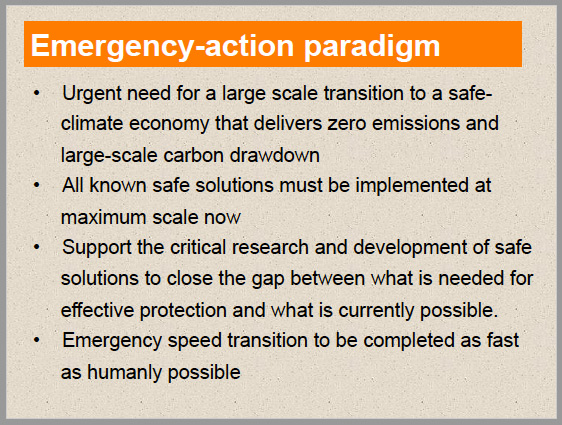

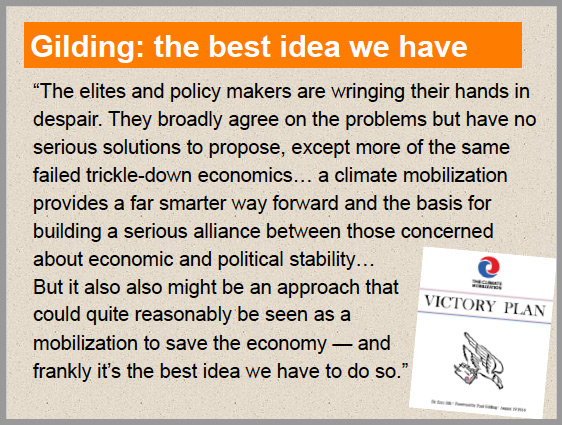

David Spratt
“We need to understand the gravity of the climate emergency and get to the bottom of what science actually demands.”
David Spratt
NASA: Record hot August, and year to date
NASA has released its temperature data for August 2016: warmest August in 136 years.
It was 0.98°C warmer than the mid-20th century average.
This makes August 1.23°C warmer than the 1880-1909 baseline (when observational records commence).
It is also the hottest August on record.
NASA stated: “August 2016 was the warmest August in 136 years of modern record-keeping, according to a monthly analysis of global temperatures by scientists at NASA’s Goddard Institute for Space Studies (GISS) in New York.”
In addition:
“The record warm August continued a streak of 11 consecutive months dating back to October 2015 that have set new monthly high-temperature records.”
Global average temperatures
Based on the 1880-1909 baseline, recent figures are:
2013-2015 average of three years: 1.01°C
2015 year: 1.12°C
January-March 2016 average – El Nino peak: 1.51°C
February 2016 – hottest month on record: 1.6°C
Average for January to August 2016: 1.31°C
First eight months of this year:
J 1.39C
F 1.6C
M 1.53C
A 1.36C
M 1.18C
J 1.05C
J 1.10C
A 1.23C
Note: for full pre-industrial figure (from mid-18th century), add 0.2C to all the above figures.
See also:
» David Spratt – 9 September 2016:
Unravelling the myth of a “carbon budget” for 1.5C
» David Spratt – 13 May 2016:
Amazing things are what we need to do on climate now
» More information on www.climatecodered.org
» Share on Facebook
